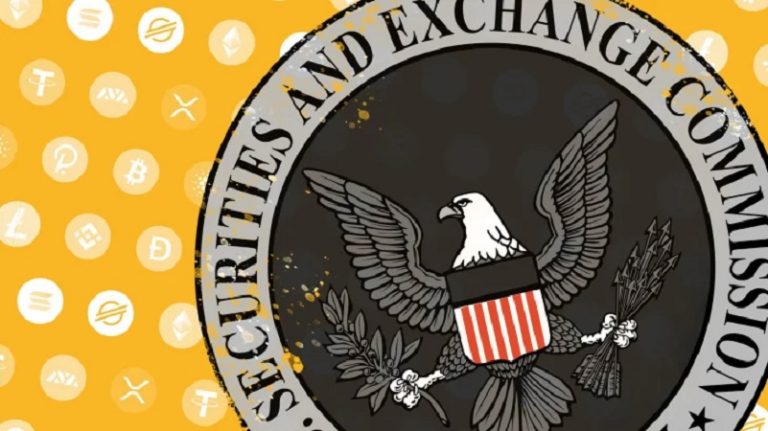
The Securities and Exchange Commission (SEC) chairman Gary Gensler has been asked to respond to a filing by Coinbase, the largest cryptocurrency exchange in the US. Coinbase filed a complaint with the SEC on September 8, alleging that the agency threatened to sue the company if it launched a lending program that would allow users to earn interest on their crypto assets. Coinbase claimed that the SEC did not provide any clear guidance or explanation on why the program would violate securities laws. The filing also accused the SEC of engaging in “unfair, abusive or arbitrary” actions that harmed Coinbase and its customers.
In a letter dated October 6, a group of 11 senators led by Pat Toomey, the ranking member of the Senate Banking Committee, urged Gensler to provide a written response to Coinbase’s filing by October 20. The senators expressed their concern about the lack of regulatory clarity and transparency for crypto-related activities in the US. They also asked Gensler to explain how the SEC determines whether a crypto asset is a security or not, and what steps the agency is taking to provide guidance and oversight to the crypto industry. The letter stated that “a robust and competitive cryptocurrency market is vital for innovation and economic growth in the US”.
The cryptocurrency industry is facing a major regulatory challenge as the U.S. Securities and Exchange Commission (SEC) has filed lawsuits against two of the largest and most influential crypto exchanges: Coinbase and Binance.
Register for Tekedia Mini-MBA edition 18 (Sep 15 – Dec 6, 2025) today for early bird discounts. Do annual for access to Blucera.com.
Tekedia AI in Business Masterclass opens registrations.
Join Tekedia Capital Syndicate and co-invest in great global startups.
Register for Tekedia AI Lab: From Technical Design to Deployment.
The SEC, led by Chairman Gary Gensler, accuses both exchanges of violating securities laws by offering and selling crypto assets that are deemed to be securities without registering with the agency or complying with its rules. The SEC also alleges that both exchanges have engaged in deceptive and fraudulent practices that harm investors and the integrity of the markets.
Coinbase, the largest U.S.-based crypto exchange, was sued on Tuesday for allegedly selling 13 crypto-assets (out of the roughly 250 it offers) that the SEC considers to be securities, as well as offering staking products that are also deemed securities by the agency. Coinbase disputes this characterization and argues that the legal framework for crypto is unclear and inconsistent, and that the crypto assets it works with do not meet the criteria of the Howey test, which is used to determine whether an asset is a security or not.
Binance, the world’s largest crypto exchange by trading volume, was sued on Monday for allegedly operating an unregistered securities exchange and committing civil fraud. The SEC claims that Binance has been allowing U.S. investors to access its global platform, Binance.com, which offers hundreds of crypto assets that are not registered or approved by the agency. The SEC also accuses Binance’s founder and CEO, Changpeng Zhao, of lying about his involvement in Binance.US, a separate entity that is supposed to comply with U.S. regulations.
The lawsuits against Coinbase and Binance are part of a broader crackdown by the SEC on the crypto industry, which Gensler has repeatedly warned about since taking office in April. Gensler, a former MIT professor who taught a course on cryptocurrency, has expressed his view that most crypto assets are securities and should be subject to the same rules and oversight as traditional financial products. He has also called for more congressional authority to regulate crypto exchanges, which he says pose significant risks to investors and markets.
The crypto industry, on the other hand, has been pushing for more clarity and guidance from the SEC on how to comply with securities laws, as well as more innovation-friendly policies that would foster the growth and development of the sector. Many crypto advocates have criticized Gensler’s approach as overly aggressive and hostile, arguing that he is stifling innovation and competition in a nascent and dynamic industry.
The outcome of the lawsuits against Coinbase and Binance could have significant implications for the future of the crypto industry in the U.S. and beyond. Depending on how the courts rule, the cases could either force the exchanges to change their business models and offerings or challenge the SEC’s authority and interpretation of securities laws. Either way, the lawsuits are likely to set important precedents and shape the regulatory landscape for crypto for years to come.
Binance.US has told its customers to withdraw their U.S. dollars, after its payment and banking partners “signaled an intent” to pause dollar fiat channels around June 13, reports Bloomberg. The news comes in the wake of an Securities and Exchange Commission crackdown on crypto trading giants Binance and Coinbase earlier in the week. Binance.US has said the SEC’s allegations are “unjustified” and that “we will continue to vigorously defend ourselves.” Crypto firms have lobbied U.S. lawmakers — unsuccessfully — to create industry-specific regulations; the Securities and Exchange Commission says existing securities rules apply to cryptocurrencies and crypto exchanges.
Binance and related entities moved about $70 billion through accounts at Silvergate Bank and Signature Bank from 2019 to 2023, according to a filing on Wednesday.
Some crypto exchanges are considering emphasizing their overseas operations — or exiting the U.S. entirely, The New York Times reports. (LinkedIn News)



